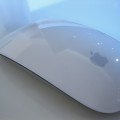
After the horrid attacks in San Bernardino, California, the last thing that we thought would be an issue is getting information from the terrorist’s iPhone. However, the ethics in retrieve the data came with a widespread potential to affect anyone with an Apple device, further intruding on your privacy.
The issue led to a court order issued to Apple, which the company’s CEO Tim Cook said they would fight because of the larger issue of user/consumer privacy. However, the company has now revealed that there was another way to gather information from the iPhone, however, investigators have ruined their chances.
“According to senior Apple executives on Friday, the FBI might have been able to obtain data from an iPhone 5C belonging to Syed Farook, one of the San Bernardino terrorists, by connecting it to a familiar Wi-Fi network and having it create a new backup on Apple’s iCloud service,” according to CNET.
“The idea was foiled, the executives say, because the password to the terrorist’s iCloud account was reset shortly after the FBI took possession of the phone. That meant iCloud and the iPhone couldn’t recognize each other, the executives said.”
However the FBI argued that data extraction that they ordered from Apple is much more useful than iCloud backup data. There is still a debate focused on what the right move should be for Apple but the company is thinking about privacy on a large scale and highlighted the dangers that consumers could face in the future if there was a backdoor encryption made available for the government.
“Apple already provided the FBI with access to Farook’s iCloud backups through mid-October, when he apparently stopped iCloud to back up the iPhone provided to him by his employers. (Farook and his wife destroyed their personal phones before their attacks.)” according to the report.
“The data left on the phone is encrypted with 256-bit AES security, the same standard used to protect US government computers. That encryption makes a brute-force attack on the iPhone 5C by the FBI nearly impossible.”
There doesn’t seem to be a compromise coming anytime soon as Apple vows to fight for the privacy of it’s consumers.
Read the full story.

